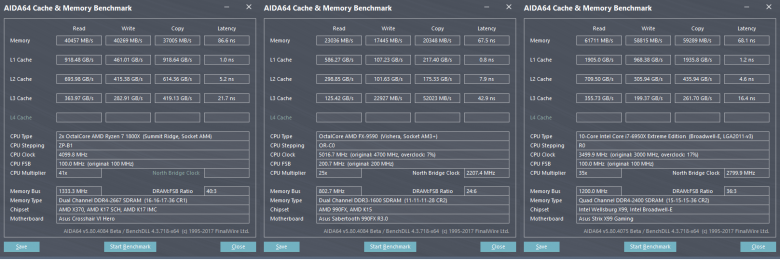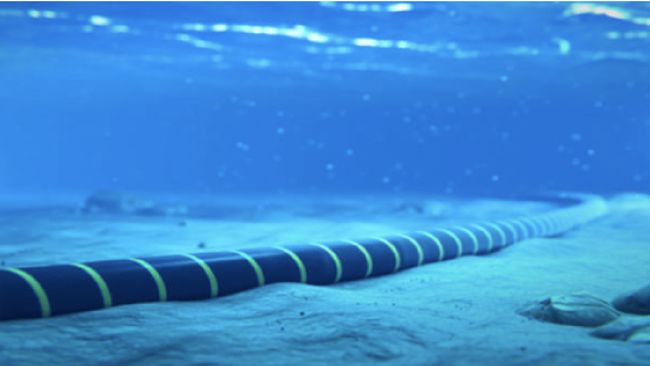Processors Alder Lake will be one of the biggest leaps in Intel’s recent history. They bring an architecture that increases IPC by almost two tens of percent. They bring a production process capable of realizing this shift without further extreme increase in consumption. They bring support for DDR5, which can increase memory throughput by 50-100%. But leaking tests show that Alder Lake it is not yet completely fine-tuned.
Alder Lake, vzorek Core i5-12600K
The memory subsystem test in AIDA64 shows that the latency of the next-generation processor memory controller reaches 92.5 ns, which is an unusually high value for current conditions. For example, the contemporary Ryzen 7 5800X reaches (depending on memory, settings, etc.) 55-65 ns. Core i7-11700K then around 50-60 ns. If we were to look for comparisons, we would have to go deeper into history to the first generation Zenu, which in the Ryzen 7 1800X reached around 87 ns:
comparison with older generation processors (source: Hexus)
This was the only major weakness of the first generation of AMD ‘s new architecture, as (as shown by the improved Zen+), latency had a fairly significant effect on the maximum achievable FPS in game tests. Alder Lake it is even worse, testing a sample equipped with very fast DDR5-6400. It should be emphasized that the numbers being compared are absolute values (nanoseconds), not the number of clocks, which are usually higher for higher clocked memories.
These results bring with them a kind of déjà vu. We could see a similar situation about half a year before the release of the desktop APU Cezanne / Ryzen 7 5700G, where leaking results indicated a slow write to the cache, while later the write and latency of the memory controller (55 ns-> 44 ns) were fixed by a newer BIOS.
We can only hope that Intel will be able to “forward” the controller in a similar way until the release, as almost 93ns latency is about twice what is currently common and in some types of applications could have an adverse effect on the resulting performance.
–



